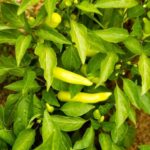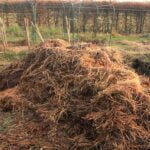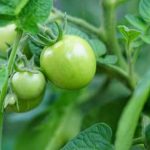Are you interested in starting a vegetable garden in Alabama? Whether you’re a seasoned gardener or just getting started, growing your own produce can be a rewarding and sustainable way to provide fresh, healthy food for you and your family. In this article, we’ll explore the ins and outs of vegetable gardening in Alabama, from the best vegetables to grow in the region to tips for dealing with common pests and diseases.
When it comes to vegetable gardening in Alabama, there are certain considerations that are unique to the region. From the climate to the soil conditions, understanding these factors is essential for a successful garden. In addition, we’ll cover watering and irrigation techniques specific to Alabama’s environment, as well as harvesting and preserving your garden’s bounty.
Whether you’re looking to start a small backyard garden or get involved in community resources and events for vegetable gardeners in Alabama, this article will provide you with all the information you need to get started and make the most of your vegetable gardening experience in the Heart of Dixie. So let’s roll up our sleeves and dig into the world of vegetable gardening in Alabama.
Best Vegetables to Grow in Alabama
When it comes to vegetable gardening in Alabama, choosing the right vegetables to grow is crucial for a successful harvest. The warm and humid climate of Alabama provides a unique growing environment, making it important to select vegetables that thrive in these conditions. Some of the best vegetables to grow in Alabama include tomatoes, okra, bell peppers, sweet potatoes, and squash. These vegetables are well-suited to the climate and soil of Alabama, making them relatively easy to cultivate.
Tomatoes are a popular choice for vegetable gardening in Alabama due to their versatility and ability to thrive in the state’s climate. They can be grown successfully both in containers and in traditional garden beds. Okra is another excellent choice for Alabama gardeners, as it is heat-tolerant and produces high yields throughout the summer months. Bell peppers are also well-suited for Alabama’s growing conditions, requiring plenty of sunlight and well-drained soil.
Sweet potatoes are a staple in southern cuisine and are well-adapted to the hot summers of Alabama. They require loose, well-draining soil and plenty of space to spread out as they grow.
Lastly, squash varieties such as zucchini and yellow squash are ideal for Alabama gardens, producing abundant yields with minimal care. By choosing these vegetables for your vegetable gardening in Alabama, you can ensure a bountiful harvest that thrives in the unique climate of the state while providing fresh produce for your table all season long.
Climate and Soil Considerations for Vegetable Gardening in Alabama
As any experienced vegetable gardener in Alabama knows, the climate and soil considerations are crucial factors to consider when planning a successful garden. Alabama’s climate is characterized as humid subtropical, with hot summers and mild winters. This means that certain vegetables thrive in these conditions, while others may struggle. The key is to choose vegetables that are well-suited to Alabama’s specific climate and soil.
When it comes to soil considerations, Alabama gardeners should be aware of the state’s diverse range of soil types. From the rich black belt soil in the central part of the state to the sandy coastal soils near the Gulf of Mexico, each region offers its unique challenges and advantages for vegetable gardening.
Testing your soil can help you determine its pH level and nutrient content, which will guide you in selecting the right vegetables and amendments for your garden.
In terms of climate considerations, it’s important to understand Alabama’s long growing season. With an average of 210 frost-free days per year in many areas of the state, gardeners have ample time to grow a variety of vegetables. However, they must also plan for intense summer heat and occasional drought conditions.
Choosing heat-tolerant varieties and implementing proper irrigation techniques are essential for success. By understanding these climate and soil considerations, vegetable gardeners in Alabama can set themselves up for a bountiful harvest.
Tips for Starting a Vegetable Garden in Alabama
Starting a vegetable garden in Alabama can be a rewarding experience, but it requires some planning and preparation to ensure success. Here are some tips to help you get started on your vegetable gardening journey in Alabama:
1. Choose the Right Location: Select a location for your vegetable garden that receives at least 6 to 8 hours of sunlight per day. Make sure the area has access to water and is well-drained. Consider building raised beds if your soil is poor or compacted.
2. Prepare the Soil: Before planting, test your soil to determine its pH and nutrient levels. Most vegetables prefer a slightly acidic soil with a pH of 6.0 to 7.0. Amend the soil with organic matter, such as compost or well-rotted manure, to improve its texture and fertility.
3. Select the Right Vegetables: When choosing which vegetables to grow in your Alabama garden, consider the local climate and growing season. Some popular vegetables that thrive in Alabama’s climate include tomatoes, peppers, okra, squash, cucumbers, and sweet potatoes.
4. Planting Schedule: Consult a planting calendar for Alabama to determine the best times to plant different vegetables based on the local climate and frost dates. Start seeds indoors or purchase transplants from local nurseries for easier establishment.
5. Pest Management: Be prepared to deal with common pests and diseases that can affect vegetable gardens in Alabama. Consider using natural pest control methods such as companion planting, row covers, or organic pesticides when necessary.
By following these tips for starting a vegetable garden in Alabama, you can increase your chances of success and enjoy a bountiful harvest of fresh produce throughout the growing season.
Common Pests and Diseases in Alabama and How to Deal With Them
When it comes to vegetable gardening in Alabama, dealing with pests and diseases is a common challenge that many gardeners face. However, with the right knowledge and preventive measures, you can minimize the impact of these issues on your garden.
Common Pests
Some common pests that can affect vegetable gardens in Alabama include aphids, cutworms, cabbage loopers, and squash bugs. These pests can cause damage to your plants by feeding on leaves, stems, and fruits. It’s important to regularly inspect your plants for any signs of pest infestation and take action promptly to prevent further damage.
Dealing With Pests
One effective way to deal with pests in your Alabama vegetable garden is by practicing integrated pest management (IPM). This approach involves using a combination of strategies such as introducing beneficial insects, using companion planting techniques, and applying organic pesticides when necessary. Additionally, keeping your garden clean and removing any debris or weeds can help reduce the likelihood of pest infestations.
Common Diseases
In addition to pests, certain diseases can also pose a threat to vegetable gardens in Alabama. These include powdery mildew, blight, and root rot. These diseases can weaken plants and lead to poor harvests if left untreated.
Dealing With Diseases
To prevent the spread of diseases in your Alabama vegetable garden, it’s important to practice good sanitation by removing any infected plant material and properly disposing of it. Using disease-resistant varieties of vegetables can also help reduce the risk of infection. Additionally, providing proper air circulation and avoiding overwatering can contribute to a healthier garden less prone to disease.
By being proactive in identifying and addressing potential pest and disease issues in your Alabama vegetable garden, you’ll be better equipped to maintain a thriving garden throughout the growing season.
Watering and Irrigation Techniques for Vegetable Gardens in Alabama
When it comes to vegetable gardening in Alabama, one of the most important factors to consider is proper watering and irrigation techniques. The hot and humid climate of Alabama can pose challenges for maintaining the right level of moisture in the soil for your vegetable garden. Whether you are growing tomatoes, peppers, okra, or squash, providing adequate water is essential for healthy plant growth and a bountiful harvest.
One effective watering technique for vegetable gardening in Alabama is drip irrigation. This method delivers water directly to the base of plants, minimizing evaporation and ensuring that each plant receives the necessary amount of moisture. Drip irrigation also helps prevent diseases caused by overhead watering, such as fungal infections. Additionally, using a soaker hose can be beneficial for delivering water to the roots of plants while conserving water by reducing runoff.
It’s important to monitor the moisture levels in your vegetable garden regularly, especially during periods of high temperatures and low rainfall. Investing in a simple soil moisture meter can help you determine when it’s time to water your plants. In addition to providing adequate hydration for your vegetables, proper watering and irrigation techniques can contribute to the overall success of your vegetable gardening efforts in Alabama.
| Watering Technique | Benefits |
|---|---|
| Drip Irrigation | Minimizes evaporation and prevents diseases caused by overhead watering |
| Soaker Hose | Delivers water directly to plant roots while conserving water |
| Soil Moisture Meter | Helps monitor moisture levels in the soil for timely watering |
Harvesting and Preserving Your Alabama Vegetable Garden
Harvesting Your Vegetables
When it comes to harvesting your vegetables in Alabama, timing is everything. Different vegetables have different optimal harvest times, so it’s important to do some research or consult with local gardening experts to know when your specific crops are ready to be picked. For example, tomatoes should be harvested when they are fully ripe and have a deep color, while leafy greens like lettuce should be harvested when they are tender and young.
Preserving Your Harvest
Once you’ve harvested your bountiful Alabama vegetable garden, it’s time to think about preserving your produce for future use. Canning, freezing, and dehydrating are all popular methods of preserving vegetables in Alabama. Canning is a great way to preserve tomatoes and peppers, while freezing works well for items like corn and green beans. Dehydrating is a good option for herbs and hot peppers.
Sharing Your Harvest
One of the joys of vegetable gardening in Alabama is being able to share the fruits of your labor with friends, family, and neighbors. If you find yourself with an abundance of vegetables, consider donating them to a local food pantry or participating in community produce swap events. Sharing your harvest not only reduces food waste but also fosters a sense of community among fellow vegetable gardeners in Alabama.
Community Resources and Events for Vegetable Gardeners in Alabama
Alabama offers a wealth of resources and events for vegetable gardening enthusiasts, providing opportunities for learning, networking, and sharing experiences. Whether you are a seasoned gardener or just starting out, there are plenty of options to connect with like-minded individuals and gain valuable knowledge to improve your vegetable gardening skills.
Some of the community resources and events available for vegetable gardeners in Alabama include:
- Master Gardener Programs: Many counties in Alabama offer master gardener programs through the Alabama Cooperative Extension System. These programs provide extensive horticultural training and certification, with volunteers sharing their expertise through community projects, workshops, and events.
- Local Gardening Clubs: Joining a local gardening club is a great way to meet fellow gardeners, exchange tips and advice, and participate in group activities such as plant swaps, garden tours, and educational seminars.
- Farmers Markets: Visiting farmers markets not only provides access to fresh produce but also offers the chance to connect with local growers and learn about successful vegetable gardening practices specific to the region. Many farmers markets also host workshops and demonstrations related to gardening.
Participating in these community resources and events can greatly enhance your vegetable gardening experience in Alabama. The shared knowledge and camaraderie of fellow gardeners can inspire new ideas, troubleshoot challenges, and ultimately contribute to a thriving vegetable garden. Be sure to take advantage of these opportunities to expand your skills and grow a bountiful harvest in your own backyard.
Conclusion
In conclusion, vegetable gardening in Alabama offers numerous benefits and joys for both novice and experienced gardeners. The favorable climate and soil conditions make it possible to grow a wide variety of vegetables, providing an abundance of fresh produce for your family’s table. Additionally, the act of tending to a garden can be a therapeutic and rewarding experience, offering a sense of accomplishment and connection to the Earth.
One of the greatest advantages of vegetable gardening in Alabama is the opportunity to enjoy homegrown, organic produce that is free from harmful pesticides and chemicals. This not only promotes healthier eating habits but also encourages sustainability and self-sufficiency. Furthermore, engaging in vegetable gardening can be a wonderful way to bond with family members, as it provides an opportunity for teamwork, learning, and outdoor activity.
There are also abundant resources and events available to support vegetable gardeners in Alabama, including community gardens, farmers’ markets, workshops, and agricultural fairs. These resources provide opportunities for education, networking, and sharing knowledge with other like-minded individuals who share a passion for vegetable gardening in Alabama. Overall, it is clear that the benefits of vegetable gardening in Alabama extend far beyond simply growing fresh produce – it encompasses physical health, mental well-being, community involvement, and environmental stewardship.
Frequently Asked Questions
What Vegetables Are Easy to Grow in Alabama?
In Alabama, some of the easiest vegetables to grow include tomatoes, peppers, squash, okra, and cucumbers. These vegetables thrive in the warm and humid climate of the state, making them low-maintenance options for gardeners.
Can You Garden Year Round in Alabama?
Yes, it is possible to garden year-round in Alabama. The state’s mild winters allow for cool-season crops like lettuce, spinach, and broccoli to be grown during the winter months. Additionally, with proper planning and care, some warm-season crops can also be grown throughout the year.
What Is the Best Month to Start a Vegetable Garden?
The best month to start a vegetable garden in Alabama is typically March. This allows for cool-season crops to be planted before the last frost date while also providing enough time for warm-season crops to be started indoors before being transplanted outdoors later in the season.

If you’re looking to get into vegetable gardening, or are just looking for some tips on how to make your current garden better, then you’ve come to the right place! My name is Ethel and I have been gardening for years. In this blog, I’m going to share with you some of my best tips on how to create a successful vegetable garden.





